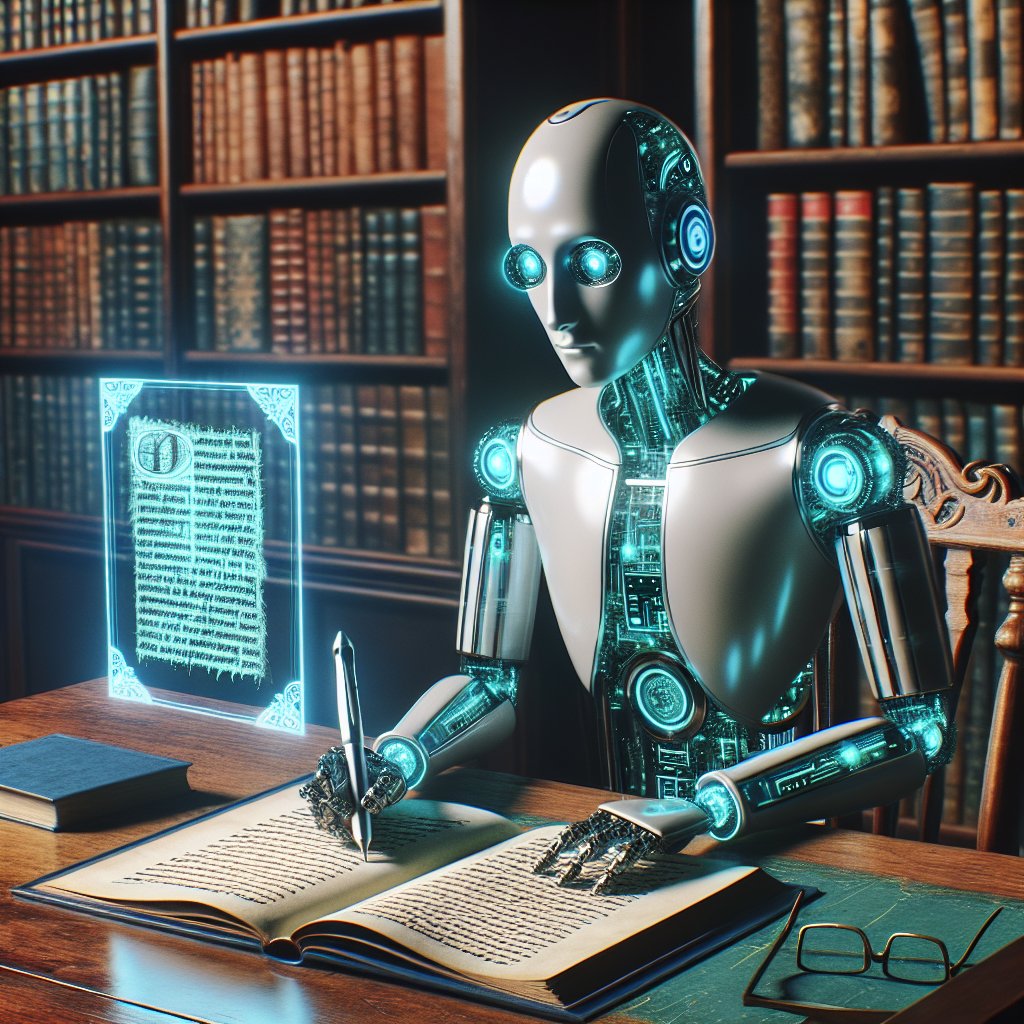The rapid advancements in artificial intelligence (AI) have sparked a widespread debate about the future of various professions, including the meticulous world of book editing. This engaging discussion not only explores the current uses of AI in the publishing industry but also delves into the potential for AI to replace book editors, raising thought-provoking questions about the role that human creativity and subjectivity will play in the future of literary excellence.
Use of AI for Book Editors
The integration of Artificial Intelligence (AI) into the realm of publishing has revolutionized the way book editors work. AI-driven tools are now capable of streamlining the editing process by catching grammatical errors, suggesting stylistic improvements, and even predicting reader preferences. This innovative technology assists editors in enhancing the readability and quality of manuscripts, making the meticulous task of editing more efficient. With AI’s assistance, book editors can focus more on the creative and conceptual aspects of content, ensuring that the narrative flow and the author’s voice are preserved while the language is polished to perfection.
The Potential for AI to Replace Book Editors
The publishing industry stands at the cusp of transformation, with artificial intelligence (AI) technology making substantial strides in automating and streamlining editorial processes. AI’s potential to assist and even replace book editors is a topic of keen interest within the literary community. These advanced systems are now capable of performing a range of tasks, from grammar and spell checking to more complex functions like style correction and fact-checking. With their ability to learn from vast databases of literature and editorial standards, AI programs are beginning to challenge the traditional role of human editors by offering quick, consistent, and often cost-effective editorial assistance.
As the evolution of AI continues to gain momentum, its integration within the editorial workflow raises pertinent questions about the future of book editing. While AI can efficiently handle the technical aspects of editing, such as correcting punctuation and ensuring syntactical consistency, the nuanced art of storytelling still largely depends on the human touch. Discovering the delicate balance between AI’s capabilities and the irreplaceable creative judgment of professional book editors has become a central topic for publishers and technologists alike. As machine learning algorithms grow more sophisticated, the publishing industry must consider how AI could reshape the role of book editors and the creation of written content as a whole.
How Can AI Assist Book Editors in Improving Manuscript Quality?
Artificial Intelligence (AI) is revolutionizing the book editing landscape, offering sophisticated tools that assist book editors in enhancing manuscript quality. AI-powered software is capable of scanning texts for grammatical errors, inconsistencies, and even stylistic issues, enabling editors to focus on more substantial content matters. By leveraging natural language processing (NLP) algorithms, AI can make suggestions for improving clarity, readability, and flow, transforming rough drafts into polished works.
The involvement of AI in the editorial process not only streamlines the workflow but also propels the accuracy and efficiency of manuscript refinement. Editors are armed with cutting-edge tools that can detect subtleties in language that are sometimes overlooked in manual editing. Consequently, AI not only complements the expertise of human editors but also strengthens the overall editorial process, ensuring that each manuscript is not just error-free, but also optimized for the target audience, making it a crucial ally in the pursuit of literary excellence.
What Ethical Considerations Arise with AI Editing in Publishing?
In the rapidly evolving landscape of publishing, artificial intelligence (AI) is reshaping the way content is edited, offering both innovative opportunities and complex ethical questions. AI editing tools are enabling publishers to streamline their workflows, enhance accuracy, and deliver personalized content at a scale previously unimaginable. These technological advancements, while increasing efficiency, also raise ethical considerations regarding the integrity of the editing process, authorship attribution, and the potential for AI to inadvertently introduce bias or to diminish the human editor’s role and the unique touch they bring to literary works.
The implications of AI’s involvement in editing span from the potential to erode the authenticity of an author’s voice to the broader societal concerns of job displacement within the publishing industry. As AI becomes more deeply integrated into the editing process, it is vital for industry professionals to navigate these ethical waters with caution, ensuring that the usage of AI aligns with established moral frameworks and enhances the value of human creativity, rather than replacing it.
Will AI Influence the Demand for Human Book Editors in the Job Market?
The advent of Artificial Intelligence (AI) has sparked a revolution across various industries, significantly impacting job markets worldwide. As this technology continues to evolve, one profession that stands poised at the crossroads of transformation is book editing. Publishers and authors alike are contemplating the ramifications of AI on the editorial process, wondering whether sophisticated algorithms can replicate the nuanced understanding of language and context that human editors bring to the table. The integration of AI-powered tools in publishing processes promises to augment productivity and precision; however, it also raises critical questions about the future demand for human expertise in book editing.
In an industry where the clarity of expression and the subtlety of the human touch are paramount, AI is making inroads by offering advanced grammar and style checking features that go beyond the capabilities of simple word processors. These AI systems are designed to analyze text with an astonishing degree of detail, suggesting improvements that can enhance readability and coherence. While they offer substantial assistance in the more technical aspects of editing, there is ongoing debate about their ability to grasp the creative and interpretative elements intrinsic to the editorial profession. The changing landscape of book publishing, propelled by AI innovations, prompts a closer examination of how human book editors may adapt to remain indispensable in an increasingly automated job market.







